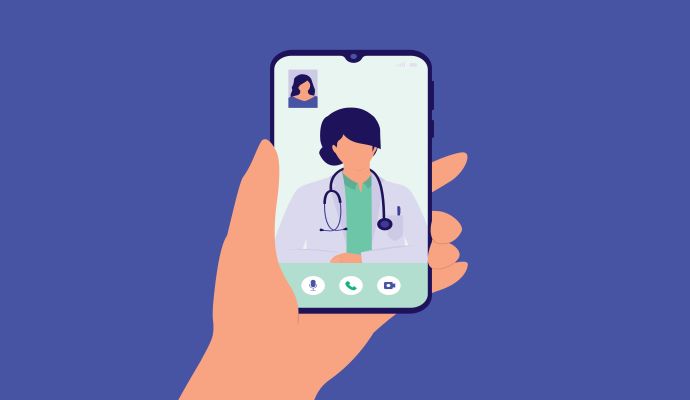Telehealth Can Support Care of Young Children with Developmental Delay
A recent study found that a telehealth-delivered parenting intervention combined with real-time therapist coaching highly benefited young children with developmental delay.

Source: Getty Images
- A study recently published in JAMA Network Open found that a telehealth intervention to support the treatment of children with developmental delay (DD) was associated with lower levels of externalizing behavior problems and higher levels of compliance with caregiver direction.
According to the Centers for Disease Control and Prevention (CDC), about 17 percent of children between 3 and 17 have at least one developmental disability.
Recognizing that behavioral issues among children with DD are prevalent, researchers aimed to determine the efficacy of a telehealth-enabled intervention in managing behavior problems.
They conducted a randomized clinical trial that included 150 children. All pediatric patients had DD and externalizing behavior problems. This population of 150 patients included 111 male children, 39 female children, and their caregivers. The trial occurred between March 17, 2016, and Dec. 15, 2020.
The goal of the trial was to compare a telehealth-enabled method of parent-child interaction therapy (PCIT), known as internet-delivered PCIT (iPCIT), with the usual method of providing referrals following early intervention. iPCIT involves therapists providing live coaching of caregiver-child interactions via webcam.
The researchers divided participants into two groups. Half were assigned to the iPCIT group, and the other half to the referrals as usual (RAU) group.
They examined observational and caregiver-report measures of child and caregiver behaviors along with caregiving stress. Researchers conducted measurements preintervention, mid-treatment, and postintervention, as well as at six- and 12-month follow-ups.
Researchers found that those in the iPCIT group displayed lower levels of externalizing problems and higher levels of compliance with instructions from caregivers. They also noted that those in the iPCIT group showed greater clinically significant change at postintervention up until the six-month point. However, come the 12-month follow-up, this was no longer the case.
Despite these positive results, iPCIT did not lessen caregiving stress any better than the RAU method. However, caregivers involved in iPCIT showed a sharper increase in the share of observed positive parenting skills, along with more significant decreases in the proportion of observed controlling and critical behaviors compared with their RAU peers.
Based on these results, researchers concluded that the parenting intervention delivered through telehealth improved the lifestyles of children with DD as well as their caregivers.
Researchers did, however, make note of several study limitations related to the focus on primary and secondary outcomes, the gradual waning of the positive effects of iPCIT, the lack of iPCIT results review beyond one year, and the single-site nature of the study, which only covered one metropolitan area.
But telehealth use is not a panacea in pediatric neurological care. A study published in May 2022 found that some pediatric neurology patients require in-person visits. Researchers came to this conclusion after noting that though telehealth is generally beneficial for this population, some virtual visits were determined to be visits of concern (VOC).
For the study, a VOC was defined as a telehealth visit that leads to an in-person follow-up sooner than if the initial visit had occurred in person. Of the 7,130 visits evaluated in the study, 5 percent, or 292 visits, were categorized as a VOC.
Researchers also noted that VOCs were often triggered by factors related to socioeconomic and racial disparities, with VOCs being more common among patients with a lower median household income and those who are a racial minority.
Thus, researchers concluded that telehealth use in pediatric neurology care must be equitable.
